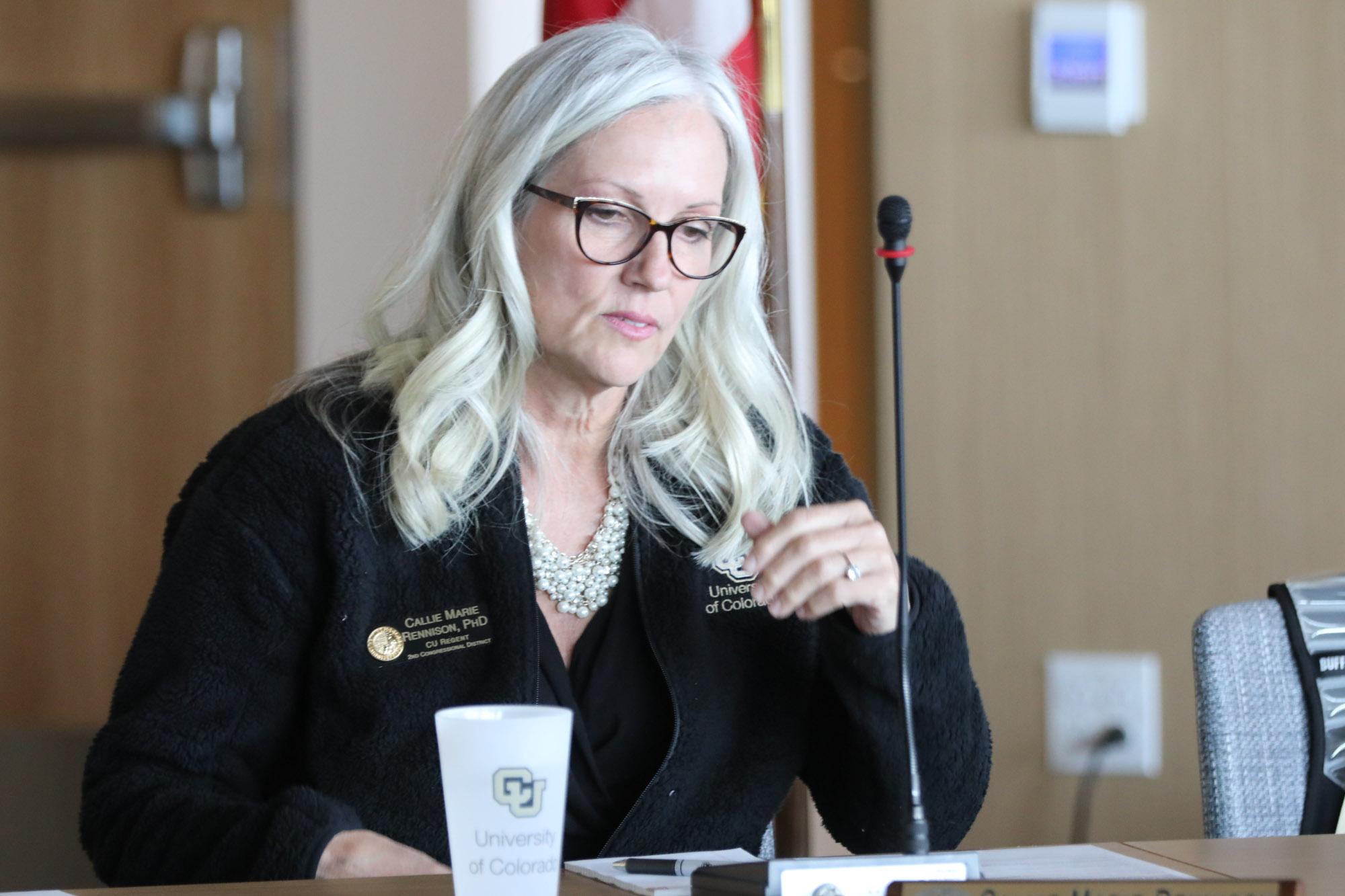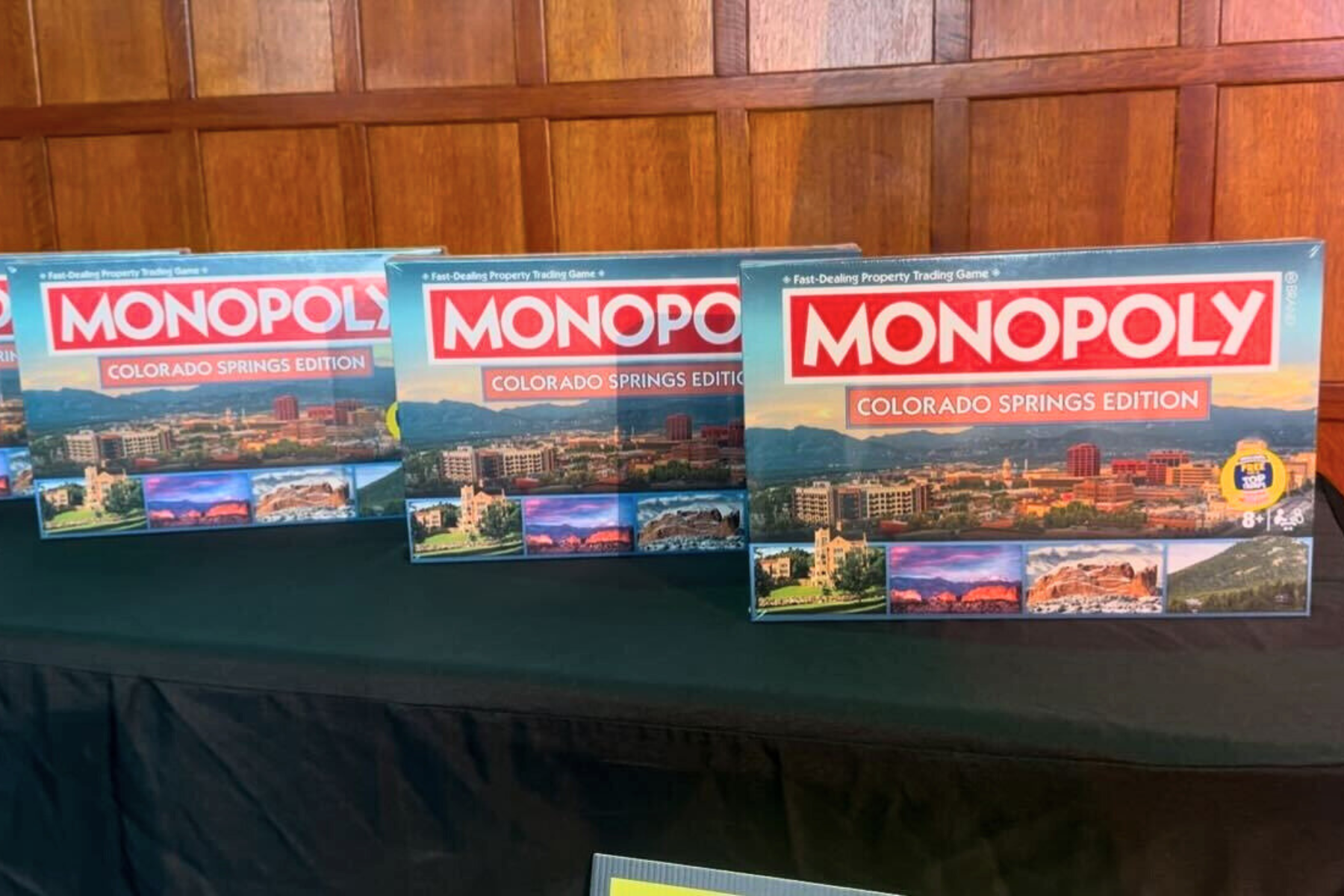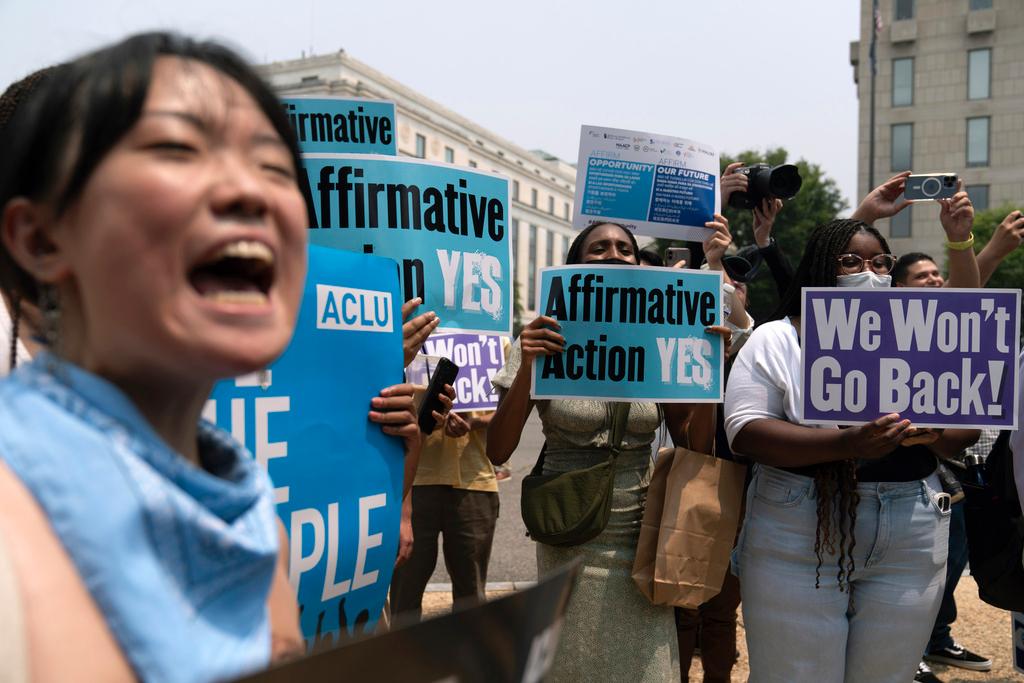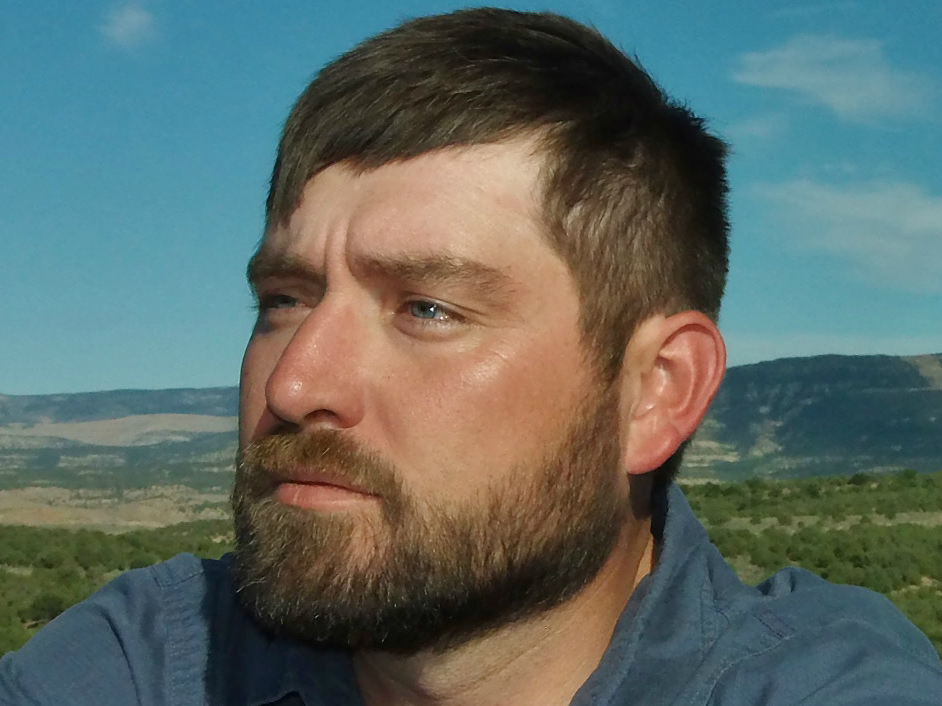
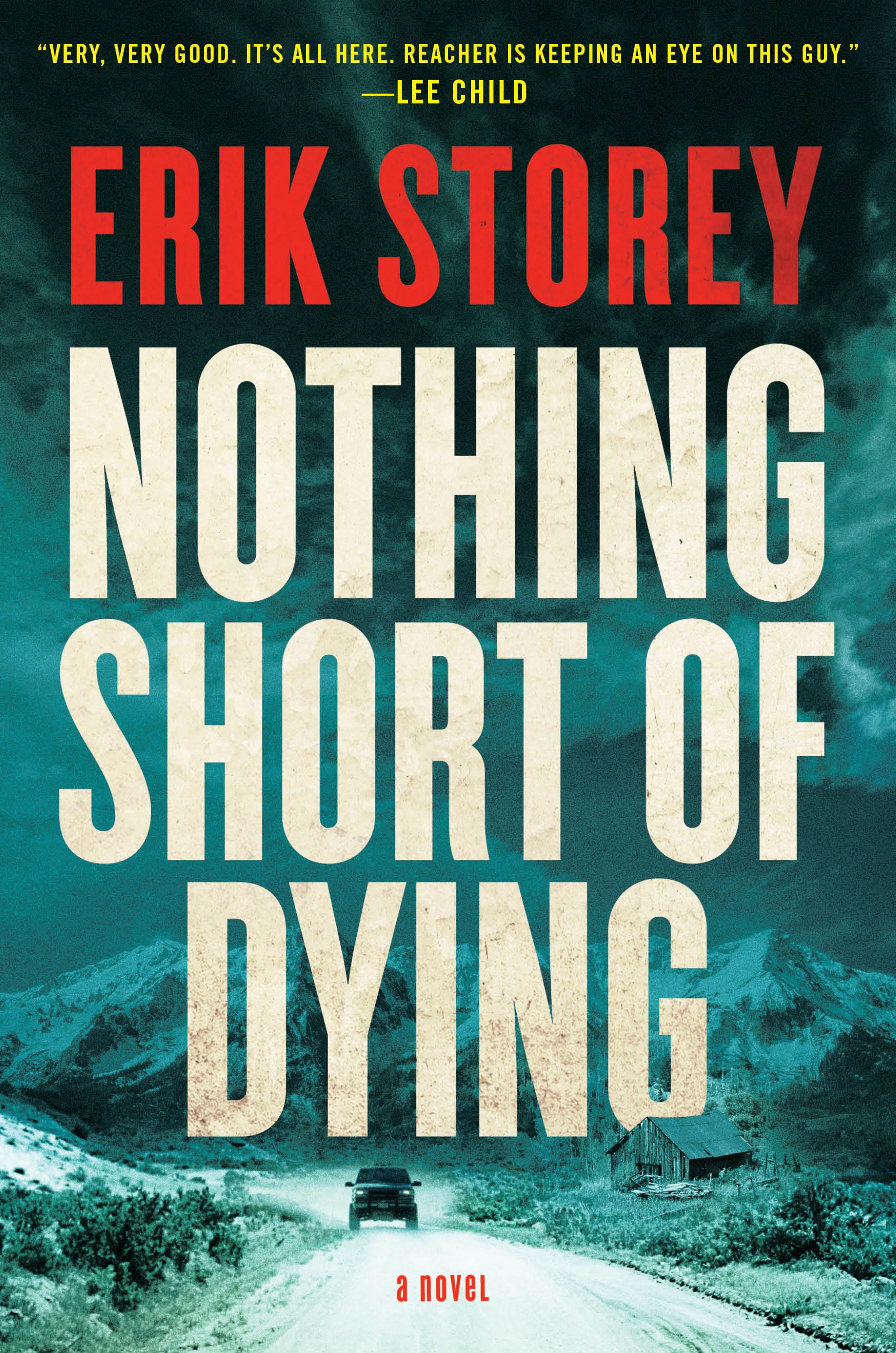
The action starts right away in Erik Storey’s debut novel, "Nothing Short of Dying," from the opening pages taking readers all over Colorado’s Western Slope on a hunt for drug dealers who kidnapped the main character’s sister.
That man is Clyde Barr, a rugged loner who was recently released from prison for involving himself in civil wars in third-world countries. Just as he's ready to settle down in the remote wilderness, he gets a call from his sister asking for help. Storey got a two-book deal and says the Clyde Barr adventures will continue in a second novel due out next summer.
For "Nothing Short of Dying" Storey drew on his own experience growing up in Rangely and spending summers in the wilderness near Glenwood Springs. Storey spoke to Colorado Matters host Ryan Warner from the CPR studio in Grand Junction, where he now lives.
Read the first chapter:
It started with a phone call in the Utah wilderness, about a week after I’d been released from prison. I’d been enjoying one of those perfect spring mornings in the mountains. Baby-blue skies, soft breeze out of the northwest, sweet sage dripping with dew, and wildlife that practically ran from the trail into the frying pan. A great morning, I thought, on the way to many more like it in the Yukon, where I planned to live in the peace and cold. I’d spent the morning tracking and then shooting a young mule deer buck. He led me through creeks swollen with muddy runoff, across hillsides so slick with fallen aspen leaves that I took a few ungraceful dives, and into a meadow of young lupine, where I pulled the trigger on my big African rifle as he turned broadside with his nostrils flaring. The rest of the day was spent cutting the buck into steaks for dinner and strips to be smoked and air dried for later use. That night I built a small campfire out of wrist-size branches of juniper and sat staring at the flames as I fidgeted with the little hunk of plastic and wires I’d bought to contact my sisters as I passed through. I’d hoped for a storybook homecoming—me calling them and telling them I was home and them suggesting I come over I was sitting in a camp chair, listening to the crickets and the night wind, and had just finished rubbing salt and pepper into the meat, when the damned plastic contraption started chirping in my pocket. The sound was like an Atari video game, and I couldn’t push buttons fast enough to make it stop. “This is Barr,” I said. “Clyde.” It was Jen, her voice barely a whisper. “I need you to come get me.” I looked up at the night sky, pulling on my beard. As happy as I was to hear her voice, the tone scared the hell out of me Back then Jen would often crawl into my room and wake me with a trembling whisper. Together, we’d push the dresser against the door, huddle in a corner, and ride out the storm. “Where are you?” “Clyde, you need to hurry. He’s going to kill me. After I help him, I’m dead.” “Who’s going to kill you? Help who with what?” I had absolutely no idea what she was talking about or where she was. “Jesus, Clyde.” Even though she whispered, I could hear her panic. “After I help him get inside a week from now, I’m no use to him. Please, please get me the hell out of here. You owe me.” She was right about the obligation. “Okay. Tell me where you are.” “Promise me. Promise you’ll come get me.” This part was important, and she knew it. If I gave my word, nothing short of dying would stop me. It hadn’t yet. I stood and watched the constellations disappear, blanketed by invisible clouds. “I promise,” I said. “Now, where the hell are you?” Suddenly there was a muffled shout and what sounded like a crash. I heard a male voice, then silence. “Jen?” There was no reply. I looked at the phone’s screen. The call-time numbers were still running. “Jen?” I said, louder. Nothing. There was a faint click and the line went dead. I flipped the phone shut and shoved it in my pocket. As the night wind stirred the trees, I pulled a soft pack of straights from my flannel shirt pocket and shook out one of the last cigarettes. After touching it to a glowing ember from the fire, I stood in the darkness next to a sweet-smelling serviceberry bush. One of my resolutions had been to quit smoking when I went into the backcountry. It was reassuring knowing there’s no better counter to the bad habit than fresh air and open spaces. But this new development put my vow on hold. As reluctant as I was to delay my journey north, I’d made a promise. And this time it was to my sister—not some villager or desperate campesino in one of the many jungles I’d hacked my way through. My own flesh and blood—whatever the hell that meant. I limped back to the fire and tossed the butt into the flames. From the valley came the lonely cry of coyotes. The wind rustled up the smells of melting snow and slowly caressed the pines as I looked back up at the stars and wondered Like me, and unlike our straitlaced sisters, she’d always been a troublemaker. She had a knack for finding the wrong people, the wrong times, and the wrong places. When we were young it had been us against the world. But then I left — left her to fend for herself, because I’d been selfish. Now I had a chance to make up for it. First though, I needed a direction. A track I could follow. I called Angie again. No answer, so I called Deb. I got another one of those mechanical voices telling me to leave a message, so I did. I wasn’t sure Deb would call back, so I went ahead and started breaking camp. The tent came down in the same amount of time it takes most people to strip their beds. It and my sleeping bag went in my big bag, a beat-up ruck I’d hauled halfway around the world. I limped over and shoveled dirt on the fire. As the last few embers suffocated under the soil, I silently said good-bye to the oak brush, aspen, and pines that had been my home this last week. I tipped my hat to Mount Lena, who’d let me sleep on her for the last couple of days. It was the closest I’d been to a woman in three years. The phone rang as I began climbing into the truck. I stepped back out into the cold mountain air and pushed buttons until the ringing stopped. “Barr,” I said. “This is Nick.” I didn’t know any Nicks. “Deb’s husband.” “Oh,” I said. “Stop calling. She doesn’t want to talk to you. Ever. Got it?” I nodded, watched the moon start to peek over the ragged horizon. Nick went on to tell me that I was a worthless bastard who’d abandoned his family. When his rant was over, I informed him what Jen had said. He told me that she was just as bad as I was and that he couldn’t care less what happened to her. I eventually prodded him into telling me that he’d seen her in Clifton with “her lowlife friends” and that she was using drugs again. “Okay, well, thanks for—” He broke off the call before I could finish. I got back in the truck, threw the phone on the cracked dash, then turned the key in the ignition. Nothing. I got back out, kicked the door, kicked the side panels, then slammed a fist on the hood. Satisfied with my mechanic skills, I got back behind the wheel and tried the ignition again. The dilapidated engine turned over, started, and made unhealthy grinding noises as I headed south. I drove off the mountain, under a brilliant moon, back toward the country I thought I’d left for good. I smacked my hands against the steering wheel and felt both it and the truck wobble. The grimy wheel was connected by an iffy steering rod to a junk pickup that I’d bought for two hundred bucks from the coyote who’d driven me across the border. Listening to the creaks and moans of the aging steel, I wondered if either of us would survive the trip. My eyes burned and the road blurred in front of me. I wanted to stop and crawl into my sleeping bag but decided on a drink instead. I grabbed the paper bag that sat on the passenger seat, pulled the bottle out, put it between my legs, and then took a big, long pull. After the liquor hit, driving away from my Yukon dreams and back toward the place I’d grown up didn’t feel so bad. But deep down I knew I was kidding myself. The truth was, Jen’s call had surfaced memories that I’d buried under many years and thousands of miles. With one phone call, she’d made me remember what I wanted to forget. When our dad left, and our mom died, I did something stupid that almost got me killed. Jen did something worse that saved my life. If anyone ever found out what we’d done, we’d both be serving life sentences. Jen’s keeping quiet kept me free. Because of that, and of what we’d endured together, I’d do whatever she asked. Excerpted from Nothing Short of Dying by Erik Storey. Copyright © 2016 by Erik Storey. Published by Scribner, a Division of Simon & Schuster, Inc. Reprinted with permission. |

